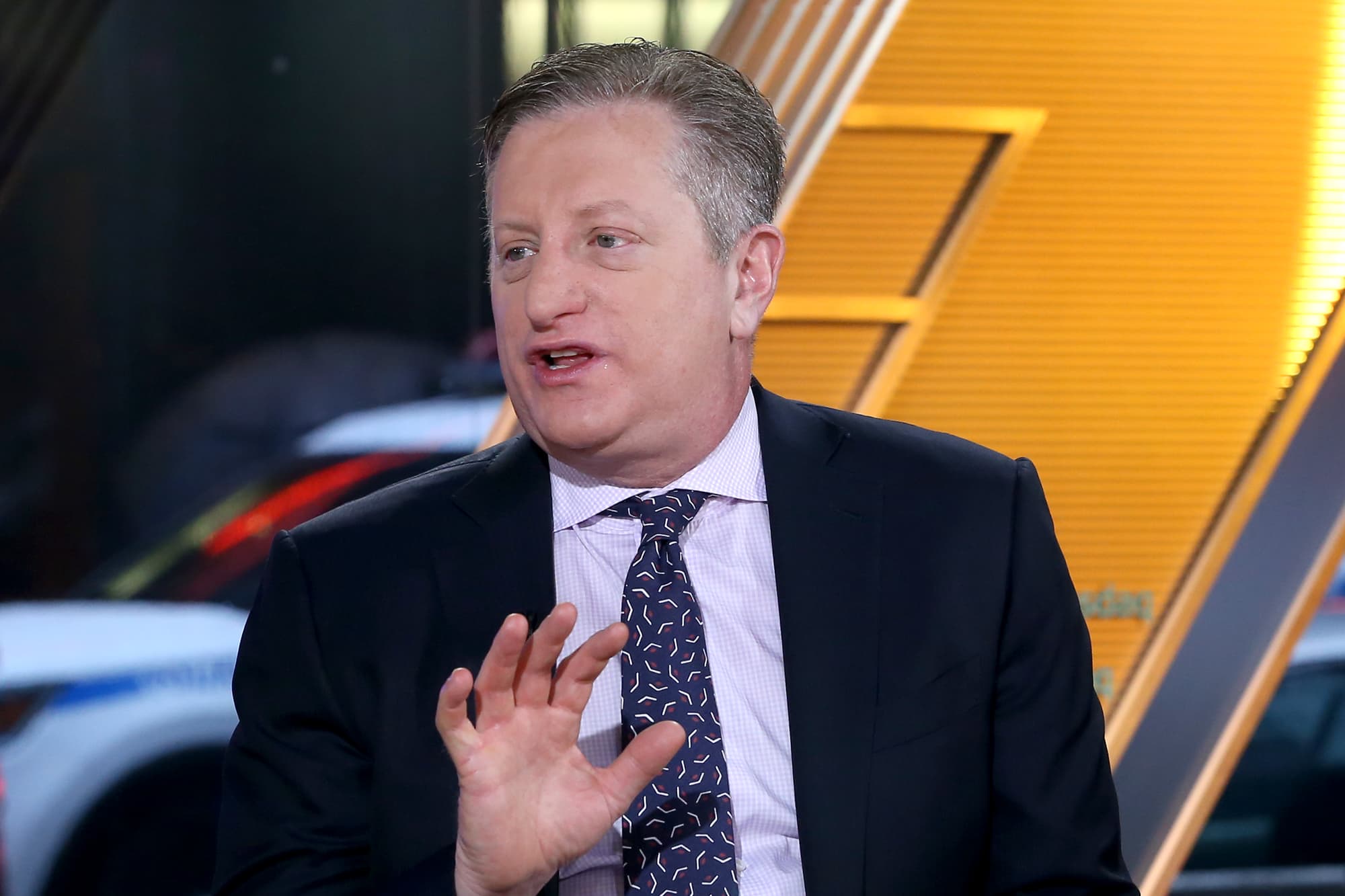The Dow just posted its best winning streak since the 1980s. Why it keeps going higher
Traders work on the floor of the New York Stock Exchange (NYSE) in New York City, U.S., July 12, 2023.
Brendan McDermid | Reuters
The Dow Jones Industrial Average just won’t stop going higher it seems like. What is behind this historical momentum for the blue chip measure created more than a century ago?
The Dow on Wednesday rose for a 13th straight day, matching its longest winning streak since 1987. If it closes higher Thursday, it would be a streak not seen since 1897 — about a year after the benchmark was created — when the Dow advanced for 14 sessions in a row. During this latest run, the Dow has outperformed, gaining 5%.
related investing news


That momentum hasn’t been seen in the broader S&P 500 and Nasdaq Composite indexes, however. Both are up just 3% since the Dow’s streak began. The S&P 500 has fallen twice in that time, while the Nasdaq has posted three losing sessions.
There are several reasons for the Dow’s streak, but none may be bigger than recession fears easing.

Dow riding 12-day winning streak
No more recession?
“So far, there’s no evidence of a recession. So as long as there’s no evidence of recession … I think the market will probably continue to melt up; people are chasing,” Steve Eisman, senior portfolio manager at Neuberger Berman, told CNBC’s “Squawk Box” earlier this week. Eisman rose to prominence for profiting from the subprime mortgage crisis. He was profiled in Michael Lewis’ book “The Big Short.”
Recession fears are easing in large part due to data showing inflation is coming down. In turn, traders are betting the Fed will stop hiking interest rates, moves that have been restraining the economy’s potential. Federal Reserve Chief Jerome Powell hinted Wednesday after the central bank hiked rates that they could hold steady at its next meeting in September.
Near the start of the Dow’s winning streak, the consumer price index, a widely used measure of inflation that tracks prices on goods ranging from food to electronics, rose just 3% on a year-over-year basis. That was less than economists expected. The next day, the producer price index, which gauges what wholesalers pay for raw goods, climbed just 0.1% in June month over month, also less than forecast.
On top of that, employment data points to a resilient economy. Companies continue to hire at a steady pace, as the most recent U.S. jobless claims data showed a decline.
The key reason strong economic data, along with weakening inflation numbers, can benefit the Dow more than other indexes is because of its make-up. Many of the stocks composing the Dow are levered to an improving economy (think American Express, Chevron, Goldman Sachs, and 3M).
Dow winners during streak
| Symbol | Name | % during streak |
|---|---|---|
| MMM | 3M Company | 12.9 |
| GS | Goldman Sachs Group, Inc. | 12.5 |
| UNH | UnitedHealth Group Incorporated | 10.7 |
| JPM | JPMorgan Chase & Co. | 8.6 |
| JNJ | Johnson & Johnson | 8.3 |
| CRM | Salesforce, Inc. | 7.8 |
| AMGN | Amgen Inc. | 7.6 |
| HD | Home Depot, Inc. | 7.4 |
| INTC | Intel Corporation | 7.1 |
| CAT | Caterpillar Inc. | 6.9 |
Source: FactSet
Strong earnings
The smaller Dow has also gotten a boost as many of its 30 members reported strong quarterly reports.
On Wednesday, Boeing shares rallied 8% to push the index into the green. The aerospace giant reported a smaller-than-expected loss and revenue that exceeded analyst expectations. The company also said it delivered 136 planes in the second quarter, up from 121 in the year-earlier period.
Meanwhile, Coca-Cola gained 1% on Wednesday after the beverage giant raised its full-year outlook and reported better-than-expected earnings. CEO James Quincey pointed to supply chain pressures easing and added that “concern surrounding the bank sector diminished and energy prices continue to pull back from record highs.”
Industrial giant 3M also reported strong second-quarter figures, with earnings and revenue exceeding analyst expectations. The stock popped 5% on Tuesday after the results were released.
The Dow’s mechanics could also be playing a part in its rally. The average is price weighted, meaning that a stock with a higher share price will exert greater influence on the overall Dow level than one with a lower share price. The S&P 500 and Nasdaq, meanwhile, are market cap weighted — meaning stocks with higher market caps will have more sway in how the indexes trade.
Goldman Sachs, the stock with the second-highest price in the Dow, is up more than 10% this month. UnitedHealth, which has the highest price, is up more than 5.7% in that time.
Bottom line: Several factors have conspired to push the Dow into a potentially historic winning streak.
For all the latest World News Click Here
For the latest news and updates, follow us on Google News.

